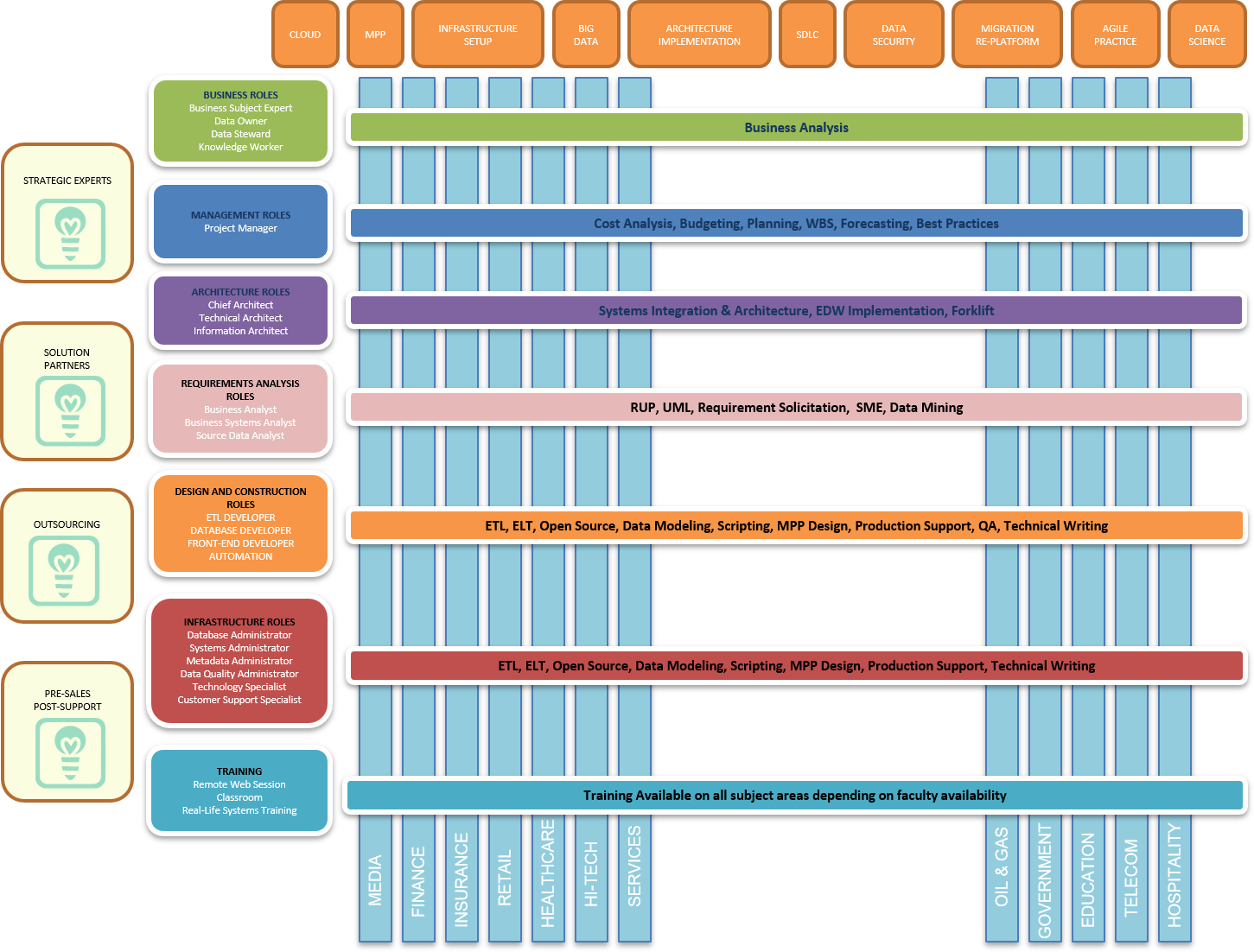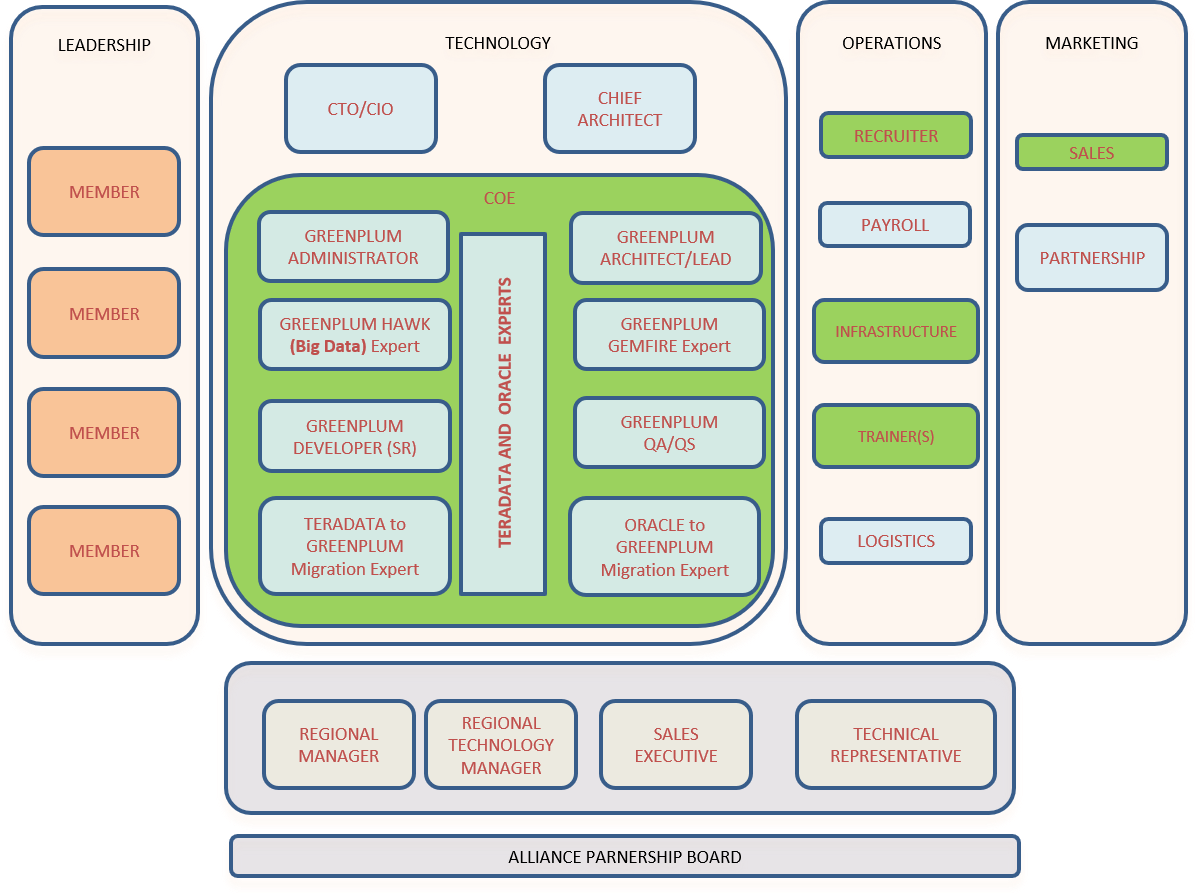CoEs are often created when there is a knowledge deficit or skills gap within an organization. For example, a company may form a new center of excellence to manage the adoption and integration of robotic process automation (RPA).
An important goal of a center of excellence is to eliminate inefficiency and help move the organization to the next level of a maturity model. A CoE should include representatives from management, a line of business ( LOB) and information technology (IT).
Depending upon the organization and area of interest, a CoE may be ongoing or temporary. When a CoE is ongoing, team members often have other job responsibilities; when the CoE is temporary, team members may be relieved of normal duties for the duration of the CoE.
Key Characteristics for the PostGreSQL CoE are:
Domain CoE’s
- In Touch with market for latest trends and updates
- Knowledge Capability Building by Knowledge Acquisition, Training’s and Partnerships
- Work closely with Technology COE to help develop innovative solutions
- Creating reusable scenarios on Industry Products
RPL Labs
- RPL labs across the globe with major center in NYC
- Develop innovative solution for client and create reusable scenarios on Industry Products and packages
- Building Frameworks and competencies on Tools and Technologies
- Collaborate with leading tool vendors for developing solutions
Technology CoE
- Tool evaluation, Commoditizing Skills on new solutions & services
- Building Frameworks and competencies on Tools and Technologies and Methodologies
- Technology Change Management & Ensuring process innovations
- Creating different technology solution accelerators
Figure below shows intersection of Roles and Capabilities

There are several quantitative and qualitative benefits that can be reaped from a CoE:
- Establish visibility and focus: Having a dedicated team means that employees and the world are aware of the focus. CoEs also demonstrate that an organization is committed to excellence.
- Eliminate Risks: CoEs are not impacted by the day to day business of an organization. They do not have to deal with immediate revenue pressures and are free to channel their expertise and focus on a single business activity, process, or capability.
- Flexibility: CoEs are not limited by all the process overheads that typical product teams may have to deal with. They have the flexibility to innovate fast and fail fast.
- Monitor Costs: CoEs make it easier to control and track costs. They help organizations measure KPIs and outcomes, especially around RoI. They also help in planning and defining the focus areas for the future.
Figure below shows the right mix of team for the CoE

Get Social